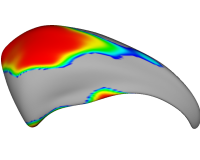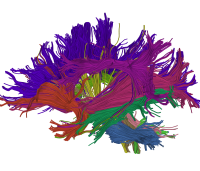Difference between revisions of "DBP1:Harvard"
| Line 77: | Line 77: | ||
This ongoing work conducts testing and development of new features in Slicer and provides a bridge between developers and researchers using the software. [[DBP:Harvard:Collaboration:Slicer|More...]] | This ongoing work conducts testing and development of new features in Slicer and provides a bridge between developers and researchers using the software. [[DBP:Harvard:Collaboration:Slicer|More...]] | ||
| − | |||
|- | |- | ||
| Line 86: | Line 85: | ||
== [[DBP:Harvard:Collaboration:Training|Training: Training Material and Expert Users Feedback]] == | == [[DBP:Harvard:Collaboration:Training|Training: Training Material and Expert Users Feedback]] == | ||
Work in this area has created training materials for Slicer software with the input of expert users. [[DBP:Harvard:Collaboration:Training|More...]] | Work in this area has created training materials for Slicer software with the input of expert users. [[DBP:Harvard:Collaboration:Training|More...]] | ||
| − | |||
|- | |- | ||
| Line 96: | Line 94: | ||
Here we write a very brief description of this project. Notice a representative image is chosen from the project and places in the left column. [[DBP:Harvard:Collaboration:Toronto|More...]] | Here we write a very brief description of this project. Notice a representative image is chosen from the project and places in the left column. [[DBP:Harvard:Collaboration:Toronto|More...]] | ||
| − | |||
| − | |||
|} | |} | ||
Revision as of 17:10, 18 December 2007
Home < DBP1:HarvardBack to NA-MIC DBP 1
Overview of Harvard PNL DBP 1
<Overview here>
For more introductory information, follow this link.
Harvard PNL Projects

|
Shape Analysis of Brain StructuresIn this work, we present shape analysis algorithms for brain structures. More... New: G Gerig, S Joshi, T Fletcher, K Gorczowski, S Xu, S M. Pizer, M Styner: Statistics of populations of images and its embedded objects: Driving applications in neuroimaging, IEEE Symposium on Biomedical Imaging ISBI 2006. |

|
Algorithms: Diffusion Tensor Imaging (PNL-UNC)In this project we look to improve statistical analysis of diffusion measures along white matter fibers of interest. More... New: Here we give something new and exciting about the project. The most recent publication on this project is very appropriate for this slot. |

|
Algorithms: Diffusion Tensor Imaging (PNL-MIT)This collaboration focuses on the analysis of diffusion tensor images of the brain, including clustering analysis of fiber tractography. More... New: Here we give something new and exciting about the project. The most recent publication on this project is very appropriate for this slot. |

|
Algorithms: Anatomical Segmentation (PNL-MIT)Research in this area produces algorithms used to segment medical images, for example separating the brain into separate tissue classes and neuroanatomical structures. More... New: Here we give something new and exciting about the project. The most recent publication on this project is very appropriate for this slot. |

|
Algorithms: Rule-based Segmentation (PNL-GaTech)This project has produced a method for semi-automated parcellation of brain structures, including the dorsolateral prefrontal cortex and the basal ganglia of the human brain. More... New: Here we give something new and exciting about the project. The most recent publication on this project is very appropriate for this slot. |
Algorithms: Tensor Based Statistics (PNL-Utah)This collaboration has focused on improving the measurement of diffusion tensors and comparison between diagnostic groups. More...
| |
Engineering: Slicer Improvement and TestingThis ongoing work conducts testing and development of new features in Slicer and provides a bridge between developers and researchers using the software. More...
| |
Training: Training Material and Expert Users FeedbackWork in this area has created training materials for Slicer software with the input of expert users. More... | |
Biology: Genetics and Imaging (Toronto)Here we write a very brief description of this project. Notice a representative image is chosen from the project and places in the left column. More... |